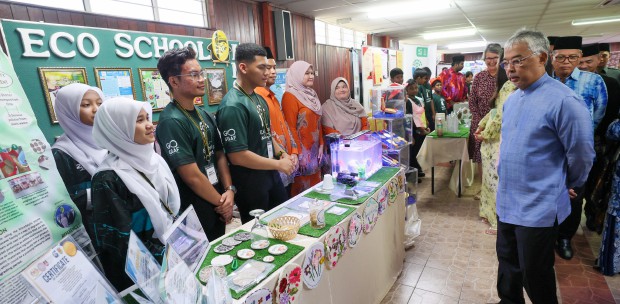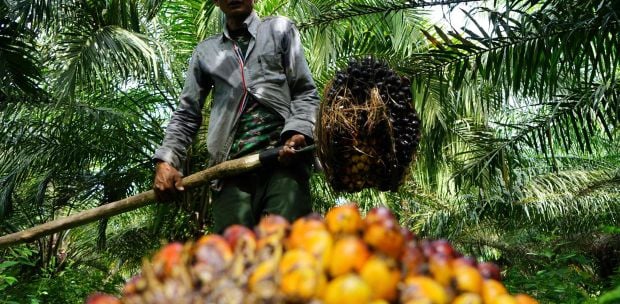WE celebrated our 52nd anniversary of Earth Day last Friday on April 22. It should serve as a reminder to continue our efforts in protecting the environment, restoring damaged ecosystems and ensuring a more sustainable way of life.
The three pillars of sustainable living are economic development, environmental integrity and social wellbeing.
We first celebrated Earth Day in 1970. Some 20 million people took to the streets in the United States to protest against the 1969 Santa Barbara oil spill.
As it had been and will always be, it took a major catastrophe to galvanise people into action to take care of their environment.
The theme for Earth Day 2022 is "Invest In Our Planet". It calls upon nations to work together "to change it all – the business climate, the political climate and how we take action on climate."
It is said that "now is the time for unstoppable courage to preserve and protect our health, our families, our livelihoods. Be warned that time is short."
In Chicago, Mayor Lori Lightfoot announced her new "2022 Climate Action Plan" for the city, which includes a substantial fund as "climate mitigation investments" and sets down the target of reducing emissions by 62 per cent by 2040.
According to the United Nations official portal (https://news.un.org), the Earth is now facing a "triple planetary crisis" – namely climate disruption, nature and biodiversity loss, and pollution and waste.
In his video message for Earth Day 2022, UN Secretary-General António Guterres said this triple crisis was threatening the wellbeing of millions of people around the world.
Critical building blocks of healthy lives (clean water, fresh air, a stable and predictable climate) are in disarray, putting the Sustainable Development Goals in jeopardy.
Regrettably, the United Nations has confirmed the coronavirus pandemic has put the Sustainable Development Goals (SDG) out of reach. Most of the goals to end poverty, protect the environment and support wellbeing by 2030 were already off course.
Despite this setback, Guterres noted several positive signs showing what could still be done if the world can act as one.
He said: "We have shrunk the ozone hole. We have expanded protections for wildlife and ecosystems. We have ended the use of leaded fuel, preventing millions of premature deaths. And just last month, we launched a landmark global effort to prevent and end plastic pollution. We have proven that together we can tackle monumental challenges."
The UN portal also described the launch in 2021 of "The UN Decade on Ecosystem Restoration", a global rallying cry "to heal our planet". The primary objectives of the initiative are to prevent, halt and reverse the degradation of ecosystems on every continent and ocean.
The following describes some of these initiatives successfully carried out in various locations across the globe:
1. Converting coal mines into carbon sinks (Appalachian Mountains, in the US)
2. Restoring ecosystem connectivity (Great Western Woodlands, Australia)
3. Transplanting "survivor" coral fragments (a Unesco World Heritage site in Belize)
4. Restoring watersheds affected by the climate crisis (the Andes mountains)
Beyond the above examples, the UN portal states that more than 50 projects had so far been registered. When the UN General Assembly meets this coming September, the world body will have its first 10 World Restoration Flagships as the most promising examples of large-scale and long-term ecosystem restoration.
On the home front, Malaysian Prime Minister Datuk Seri Ismail Sabri Yaakob had urged all quarters to make sustainable practices a part of their culture for the sake of future generations.
He said that in line with the eighth focus of the 12th Malaysia Plan, which is "Speeding up Green Growth", economic development should not jeopardise the environment while areas under green cover should be protected.
He added that speeding up green growth, enhancing energy sustainability and transforming the water sector will remain as the core of the country's socioeconomic development. Greenhouse gas emissions will be reduced gradually to make Malaysia a low-carbon country.
Echoing the prime minister's sentiments, Environment and Water Minister Datuk Seri Tuan Ibrahim Tuan Man said that 26 initiatives were formulated under the Environmental Sustainability Plan 2020-2030, covering the four components of the environment — air, water, land and living things.
Repeating the government's commitment that air and water quality in Malaysia "will be at the best level", the minister said that the government will continue seeking new investments in the country's green economy sector.
It can only mean that Malaysia cares deeply about the environment together with the rest of the world.
The writer, a former federal counsel at the Attorney-General's Chambers and visiting professor at Universiti Teknologi Malaysia, is now a full-time consultant, trainer and author.
The views expressed in this article are the author's own and do not necessarily reflect those of the New Straits Times






